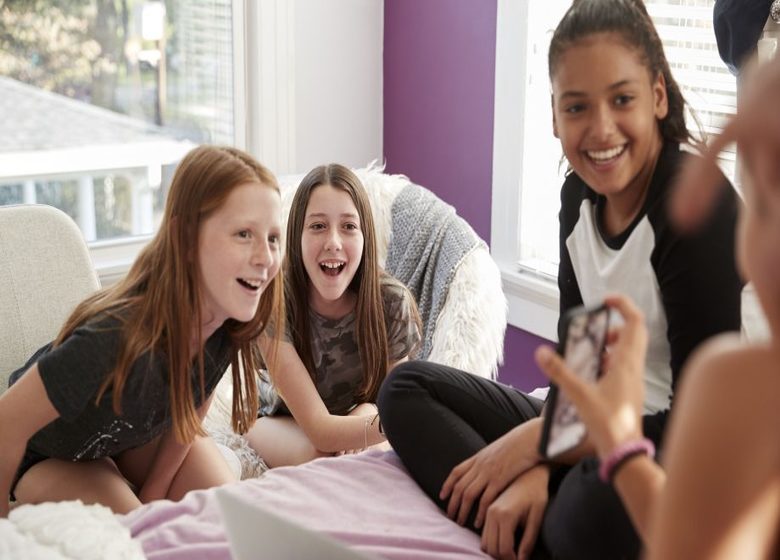Emotional and Physical Changes during Puberty
Puberty is a time of physical and emotional change that happens when children grow and mature. A number of psychological changes in adolescence also mean that the way you think and feel changes. It means gaining independence, developing your own thoughts, building confidence, and becoming a great leader, friend, and daughter – in short, a great you!
Psychological or emotional changes during puberty manifest in different ways, but often through a change in behavior. Dealing with these emotional changes is not easy for teens, but it may not be easy for parents either. There could be several ways in which the teens may respond to situations and some of these come with a marked difference from their normal behavior.
Girls hit puberty around 10 or 11 years of age, while boys reach around 11 or 12 years. However, both boys and girls can have an early or delayed onset of puberty. This changes their behavior and interaction socially and at home.
What Are Some Emotional Changes During Puberty?
Here are some of the emotional changes during puberty and how to handle them:
-
Experiencing mood swings
Mood swings can be a part of growing up. One minute you feel like you’re on cloud nine, and the next you feel like you want to scream your head off. Your body is being rushed with a whole bunch of new hormones that create a host of emotional changes during puberty. It can feel hard to keep up. It’s a great time to practice expressing your feelings and your emotional needs. Instead of lashing out, talk about how you feel. Maybe consider keeping a journal to help organize your thoughts and feelings.
-
Feeling differently about your peers
An important part of the mental changes that occur during adolescence is starting to look at your relationships differently. This can mean forming deeper, more emotional bonds with friends. Friends are people that you can confide in, not just someone to play with like they were when you were younger. Practice being a good friend by being reliable and trustworthy. This can also help build your confidence and sense of self. Feeling differently about your peers can also mean developing romantic feelings for a certain someone.
-
Becoming more sensitive to the world around you
This means gaining perspective about people and events beyond yourself. An important psychological change during adolescence is getting a better grasp on the world around you.
-
Feeling overly sensitive
One of the more difficult emotional changes in adolescence is feeling your feelings very intensely. Increased awareness of your surroundings, increased hormones, social pressures to fit in – it can all turn your feelings up to max volume. You may find yourself become sad or irritable at the drop of a hat. Take deep breaths to calm yourself. Take some alone time if you need it. And remember to positively communicate what you feel and what you need from others around you. Constructive communication (i.e. without yelling, shouting, or tantrums) will make these emotions feel more manageable. If you want help from a professional to help sort out your feelings, speak to a parent or trusted adult about setting that up.
-
Feeling self-conscious
You may also feel self-conscious about your changing body. This is normal. We know it can be hard to accept a changing body at a time when fitting in with your peers feels so important. Everyone feels self-conscious at some point or another. Don’t let it get you down. Practice a little self-love. Look in the mirror every day and find something you can compliment yourself on.
-
Peer pressure
As you move through adolescence, your peer group will start taking on increased importance in your life. This can lead to peer pressure. That’s when friends and others your age may try to convince you to participate in certain activities in order to fit in – whether that’s dressing a certain way, talking a certain way, or engaging in activities that may seem risky.
Other Ways of Coping with your Changes
-
Take up a sport or physical activity
Sports are a great confidence booster and a great stress reliever. That’s a double win when you’re going through the emotional changes of puberty.
-
Keep a journal
Getting your thoughts out of your head and on to paper can calm the emotional storm that you sometimes feel. Keeping a journal can also be a great way of organising your thoughts and feelings.
-
Talk to your parents
They’ve been through adolescence themselves and likely can give you some great guidance. Don’t be afraid to share with them what’s going on with you. They can be a great resource.
-
Learn about the changes happening in your body
Knowing what’s happening in your body and what changes to expect can help you prepare. Knowing what to expect and that the changes you’re experiencing are normal can help you feel less self-conscious and sensitive. Knowledge is power.
For Parents
Changes you see in your Teenager Child
(Read: What your Teenager wants from you?)
- Change In Relationships
Relationship dynamics change soon after puberty. Your kid may start spending more time with peers than with you. They may even feel embarrassed to be seen with a parent in public. It may seem that friends are more important than family to your child.
For an adolescent, both friends and family are important. They want the acceptance of their peers, along with the guidance and support of parents. So putting them in a situation where they need to choose one from the other is not going to help. It will add to their stress and may even make the parent a villain who wants to control them. Eventually, they may start questioning and rejecting what their parents say and do.
-
Uncertainty And Indecisiveness
Adolescents are neither adults nor kids. Because of this, teens are often confused about where they belong and what stance they should take. On one hand, they feel emotions like fear, insecurity, and helplessness as a child and on the other, they feel that they shouldn’t because they are grown ups. The uncertainty often leads to indecisiveness.
Children are also expected to act or behave in a certain way as they grow up. They are expected to be responsible too. The change in expectations can be very confusing as well.
-
Sexual Feelings And Gender-Specific Mannerisms
The surge of sex hormones during puberty causes children to have sexual feelings. Sexual maturity gives rise to new feelings and ideas that your child has not had before.
Also, they may start developing gender-specific mannerisms. For example, your little girl may start showing interest in dressing, makeup, and other feminine things, while your boy may want to indulge in activities like skating, sports, or bike riding that give him a rush. These, however, vary largely with personality traits.
Your children may begin thinking about romantic relationships – how they see their peers from the opposite sex also changes. They may get aroused when they watch a romantic scene on TV, and get attracted to the opposite sex.
Ways to deal with your Teenager child
Here are some ideas to help you support your child’s social and emotional development.
-
Supporting social and emotional development in adolescence
-
Social and emotional changes are part of your child’s journey to adulthood. You have a big role to play in helping your child develop grown-up emotions and social skills. Strong relationships with family and friends are vital for your child’s healthy social and emotional development.
-
Be a role model
You can be a role model for positive relationships with your friends, children, partner and colleagues. Your child will learn from seeing relationships that have respect, empathy and positive ways of resolving conflict.
You can also role-model positive ways of dealing with difficult emotions and moods. For example, there’ll be times when you’re feeling cranky, tired and unsociable. Instead of withdrawing from your child, you could say, ‘I’m tired and cross. I feel I can’t talk now without getting upset. Can we have this conversation after dinner?’
(Read: Know how to Discipline your a Teenager)
-
Get to know your child’s friends
Getting to know your child’s friends and making them welcome in your home will help you keep up with your child’s social relationships. It also shows that you recognise how important your child’s friends are to your child’s sense of self.If you’re concerned about your child’s friends, you might be able to guide your child towards other social groups. But banning a friendship or criticising your child’s friends could have the opposite effect. That is, your child might want to spend even more time with the group of friends you’ve banned.
-
Listen to your child’s feelings
Active listening can be a powerful way of strengthening your relationship with your child in these years.To listen actively, you need to stop what you’re doing when your child wants to talk. If you’re in the middle of something, make a time when you can listen. Respect your child’s feelings and try to understand his perspective, even if it’s not the same as yours. For example, ‘It sounds like you’re feeling left out because you’re not going to the party on Thursday night’.
-
Be open about your feelings
Telling your child how you feel when she behaves in particular ways helps your child learn to read and respond to emotions. It also models positive and constructive ways of relating to other people. It can be as simple as saying something like ‘I felt really happy when you invited me to your school performance’.
-
Talk about relationships, sex and sexuality
If you talk about relationships, sex and sexuality in an open and non-judgmental way with your child, it can promote trust between you. But it’s best to look for everyday times when you can easily bring up these issues rather than having a big talk.
When these moments come up, it’s often good to find out what your child already knows. Correct any misinformation and give the facts. Use the conversation as a chance to talk about appropriate sexual behaviour. And let your child know you’re always available to talk about questions or concerns.
Also read: Is your Teenager having behavioral issues?













